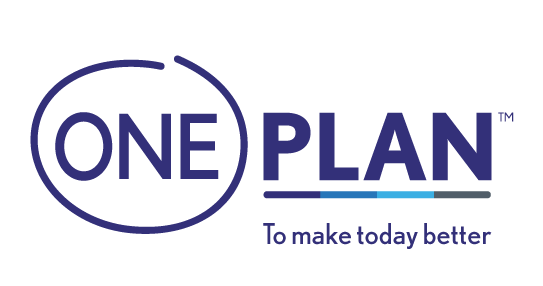If you are not sure what the difference is between medical aid and health insurance, then you are not alone. To clear the air and to clearly define the differences, we have put together an expert guide on the topic.
You might know health insurance as the more affordable alternative to Medical Aid. While cost is certainly a big differentiating factor, it isn’t the only thing that sets these two medical expenses cover apart. The thing is, medical aid and health insurance are two different products, one (Medical Aid Scheme) is a form of insurance and the other (Health Insurance) is a type of insurance. What’s more, you can have BOTH of them at the same time.
But before we get into the main differences, let’s first define what each of these products is.
Tell me more about medical aid
Medical aid is a form of medical cover. What this means is that in exchange for a contribution, a Medical Scheme helps you pay for your medical expenses, such as doctor’s visits, nursing, surgery, and dental work.
Medical aid is regulated by the Medical Schemes Act in South Africa and governed by the Council for Medical Schemes (CMS). Medical aid schemes are required to stick to a list of rules and regulations, which includes price, prescribed minimum benefits, and type of cover.
PMBs (prescribed minimum benefits) include the cost of treatment for chronic health conditions and a detailed list of in-hospital medical procedures.
Medical aid DOES NOT include non-medical expenses such as loss of limbs cover or personal accident disability. Medical aid schemes are also not authorised to include accidental death or funeral cover as part of the benefits.
Tell me more about health insurance
In South Africa, health insurance is regulated by the Short-Term Insurance Act and the Long-Term Insurance Act. These acts provide a legal framework for the operation and governance of health insurance products in the country.
The Demarcation Regulations were introduced to clarify the distinction between medical schemes and health insurance products. These regulations specify the types of insurance products that fall under short-term insurance and are subject to the regulations of the Short-Term Insurance Act.
Under the Demarcation Regulations, certain short-term insurance products are permitted. These include Gap Cover, which is designed to cover the “gap” between medical scheme benefits and the actual costs of healthcare services.
Primary Healthcare products are also permitted under the Demarcation Regulations. These products focus on providing basic healthcare services, such as consultations with general practitioners, basic medication, and preventive care. It’s important to note that Primary Healthcare products are exempt from the Medical Schemes Act (MSA) under the Demarcation Regulations but are subject to regulation by the Council for Medical Schemes (CMS).
Here’s how health insurance works:
While medical aid covers a set of specific treatments, health insurance will provide you with a benefit limit for a specified list of defined risks. In your health insurance policy, you will find a list of specified benefits each with their own monetary value. Health insurance is more than just a hospital plan.
Plans include cover for routine care (preventive healthcare), such as doctor visits, and some plans also include specialist cover. As well as this, you will also have cover for accidents, emergencies, accidental disability cover and accidental death cover. With health insurance, there are CLEARLY defined limits to your cover.
What is the difference between medical aid and medical insurance?
Medical aid costs more = has to cover the high cost of life-threatening conditions
Medical aid schemes cover in-hospital benefits according to the National Recommended Price List limiting benefits as per the plan and fully covers Prescribed Minimum Benefits (PMBs).
The amount you are paid out in the event of a claim will depend on the type of medical treatment you need. Keep in mind, however, that medical aid does not include accidental disability cover including loss of limbs, or accidental death cover.
Health insurance is more affordable = set list of benefits and limits
A limit is the maximum amount of money you will receive from your insurer in the event of a claim. Health insurance is far more affordable than medical aid because, as a policyholder, you know exactly what events you are covered for and what the monetary value of these are in the event of a claim. Health insurance does not have to comply with the same rules as medical aid in terms of covering PMBs, making it more affordable.
With health insurance, you will receive full settlement of an invoice or up to the cover limit (whichever is less). This payout is based on a fixed amount outlined in your policy document. Health insurance lets you know exactly what your health benefits include and what the cash payout will be for these specific benefits.
Have a look at these health insurance plans to get a good idea of what we mean. If you can afford to have BOTH medical aid and health insurance, then this is a great way to ensure your health and your budget are well looked after. Health insurance can work as a form of gap cover when your medical aid or medical savings fall short.
Health insurance that pays you BEFORE you see the doctor
With us (Oneplan), we front you with the cash you need before your doctor’s appointment so that you can simply pay with your Onecard after your consultation. Medical aids, on the other hand, often require that you pay your doctor out of your own pocket and then claim back. In some cases, the doctor is part of your medical aid’s network and will bill your medical aid directly.
With Oneplan Health Insurance, we do not limit you to a specified network of doctors. You have the choice to go to any doctor you like. We also offer an Excess Buster add-on which means you pay ZERO excess on claims – no more worrying about out-of-pocket expenses in an emergency!
Oneplan also understands how important it is to make sure your entire family has access to the medical care they need, which is why we offer discounted premiums when you add a partner or child to your plan.
The bottom line
Health insurance and medical aid schemes both play important roles in providing financial coverage for healthcare expenses. However, here are some arguments for why health insurance may be considered a more suitable option than a medical aid scheme in South Africa.
Flexibility and Choice: Health insurance plans often offer a wider range of options when it comes to selecting doctors, hospitals, and specialists. This flexibility allows you to choose healthcare providers that best suit your needs and preferences. In contrast, medical aid schemes may have restrictions on the choice of healthcare providers.
Cost Control: Health insurance plans typically offer a variety of coverage options with different premium levels, deductibles, and co-pays. This allows you to select a plan that aligns with your budget and healthcare needs. Additionally, health insurance plans may negotiate discounted rates with healthcare providers, helping to control costs. Medical aid schemes in South Africa often have fixed benefit structures and contribution rates, which may limit cost control options.
Portability: Health insurance plans are generally more portable than medical aid schemes. If you change jobs or move to a different location within South Africa, your health insurance policy can often be carried over or transferred. This ensures continuous coverage and eliminates the need to reapply for coverage or meet waiting periods.
Customization: Health insurance plans can often allow you to tailor your coverage to specific healthcare needs. For example, you can choose to include or exclude certain services based on your preferences or budget. This customisation can help you create a more personalised and cost-effective healthcare plan. Medical aid schemes typically have standardised benefit packages, offering less flexibility in customisation.
It is important to note that the suitability of health insurance or a medical aid scheme depends on your circumstances, preferences, and healthcare needs. Both options have their own advantages and disadvantages, so it’s crucial to carefully consider your specific requirements and compare available options before making a decision.
Your Health Insurance Family,
Oneplan
Disclaimer:
The content provided herein is for informational purposes only and does not constitute medical and/or financial advice. Oneplan Health Insurance is not a benefit option regulated by the Medical Schemes Act and the cover provided is not the same as medical aid cover. Oneplan Health Insurance is not a substitute for medical aid membership. Oneplan does not express or by implication represent, recommend or propose that products or services referred to herein are appropriate to the specific needs or circumstances of any third party. If there are any discrepancies between this information and the contractual terms and conditions, the terms and conditions will prevail.
Oneplan Health Insurance is administered by Oneplan Underwriting Managers (Pty) Ltd, an authorised financial services provider FSP43628 and underwritten by Bryte Insurance Company Limited a licensed non-life insurer and an authorised FSP (17703).




